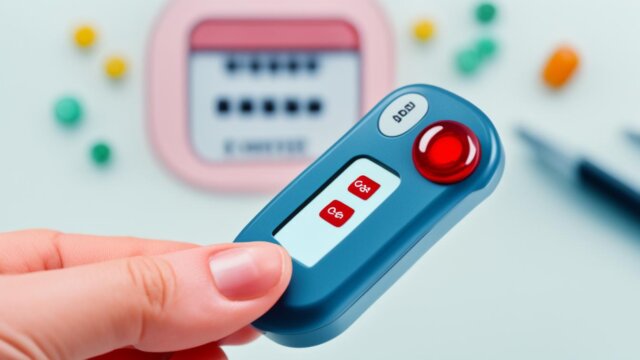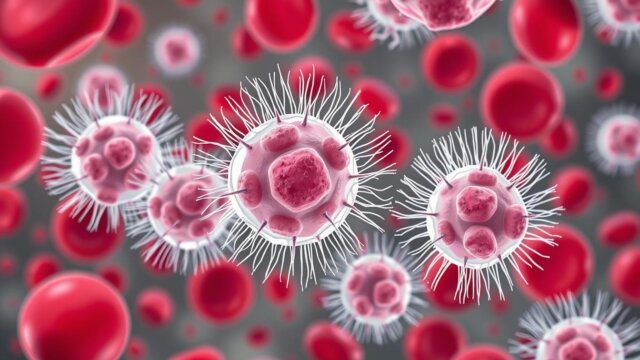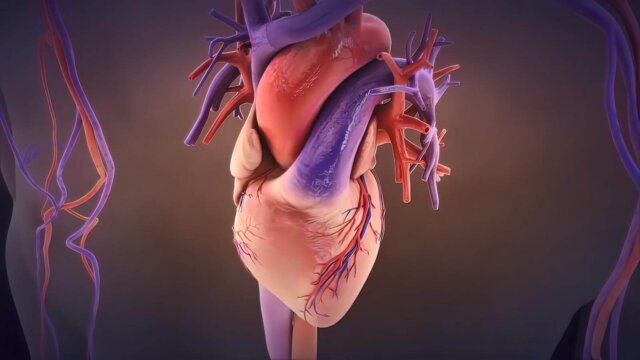FTC disclaimer: This post may contains affiliate links and we will be compensated if you click on a link and make a purchase.
Fish oil reduces triglycerides. How’s that for indisputable and precise?
Of the many health benefits of fish oil with Omega-3, reducing triglycerides is one of the most significant and most clearly established.
What Are Triglycerides?
Triglycerides are fats in your blood, like cholesterol.
Your body requires some triglycerides, but too much can lead to a heart attack or stroke.
For those who want more detail, below is how triglycerides are formed.
Carbohydrates that you eat are converted into glucose and used as energy by your cells. Excess glucose, which is more than your cells need, is sent back to your liver, where it is converted into glycogen.
Glycogen is stored in the muscles, but when you reach your capacity for glycogen, the excess glycogen is sent back to your liver (as was excess glucose), where it is converted into triglycerides.
Triglycerides are stored as fat.
However, some of the triglycerides are not stored as fat. Instead, they remain in your bloodstream.
And excess triglycerides in your blood make it more susceptible to clotting and blockages, which could eventually lead to a heart attack or stroke.
What Causes High Triglycerides?
These are some of the causes of high triglycerides:
- Excessive intake of alcohol, saturated and trans fats, sugar, starch, and calories
- Weight gain
- Lack of exercise
- Smoking
- Skipping meals
- Eating large portions of food at one time
- Medicines such as birth control pills, steroids, and diuretics
- Medical conditions such as poorly controlled diabetes, insulin resistance (a precursor to diabetes),
- Polycystic ovary syndrome (PCOS), hypothyroidism, kidney disease, liver disease, and age
When Are Your Triglycerides Too High?
Triglyceride levels are measured through a blood test.
Your triglyceride level result is according to the National Heart, Lung and Blood Institute, National Institutes of Health, and U.S. Department of Health and Human Services.
- Normal – Less than 150 mg/dL
- Borderline-high – 150-199 mg/dL
- High – 200-499 mg/dL
- Very high – 500 mg/dL or above
Why Does Fish Oil Reduce Triglycerides?
The component of fish oil that effectively reduces triglycerides is Omega 3, which is a fatty acid.
That’s right, although it sounds incongruous, fats help reduce blood fats.
Omega 3 is a form of “good fat,” very different from the harmful saturated fats we take in through fast foods and processed foods.
There are three different Omega 3 fatty acids which reduce triglycerides.
One form is called alpha-linolenic acid (ALA), and it is found in flaxseed oil, soybean oil, and canola oil. And, to a lesser degree, in walnuts, dairy products, beans, broccoli, and green leafy vegetables.
ALA has been shown to reduce triglycerides but is not nearly as effective as the other two Omega 3 fatty acids types, Docosahexaenoic acid (DHA) and Eicosapentaenoic acid (EPA).
EPA and DHA are found primarily in cold-water fatty fish such as salmon, mackerel, lake trout, herring, sardines, Hoki, and albacore tuna.
Research has shown that DHA and EPA can reduce triglyceride levels by 25% to 35%, or even more.
Another research study has stated that fish oil reduces triglyceride levels by lessening adipose tissue inflammation and increasing the intake of fatty acids in adipose, heart, and skeletal muscle.
However, a study has proven the link between cardiovascular disease and triglycerides.
It further stated that intake of Omega-3 supplements could help treat hypertriglyceridemia and prevent cardiovascular risk.
What Is The Proper Dosage Of Omega 3 To Reduce Triglycerides?
The triglyceride-lowering effects of Omega 3 appear to be dose-dependent. The more you take, the more your triglycerides are lowered.
However, a high intake of Omega-3 fatty acids can cause bleeding in some people. Therefore, you should not take more than 3 grams of Omega 3 from supplements without being under a doctor’s care.
According to the Science Advisory from the American Heart Association, It is shown that taking 2-4 grams of EPA + DHA Omega-3 daily can lower triglycerides by approximately 25 % to 35 %.
The Best Source Of Triglyceride-Lowering DHA And EPA
If you are taking DHA and EPA Omega 3s protectively, you can eat fatty fish at least twice a week to prevent your triglycerides from increasing to dangerous levels. That should give you the full benefit of Omega 3 in lowering triglycerides.
If you can’t consistently eat that much fish, or if you are concerned about fish being contaminated by mercury, PCBs, and other toxins, you can take a fish oil supplement.
And, of course, if you are taking fish oil to reduce high triglycerides, you should take the amount of the supplement that your physician recommends.








